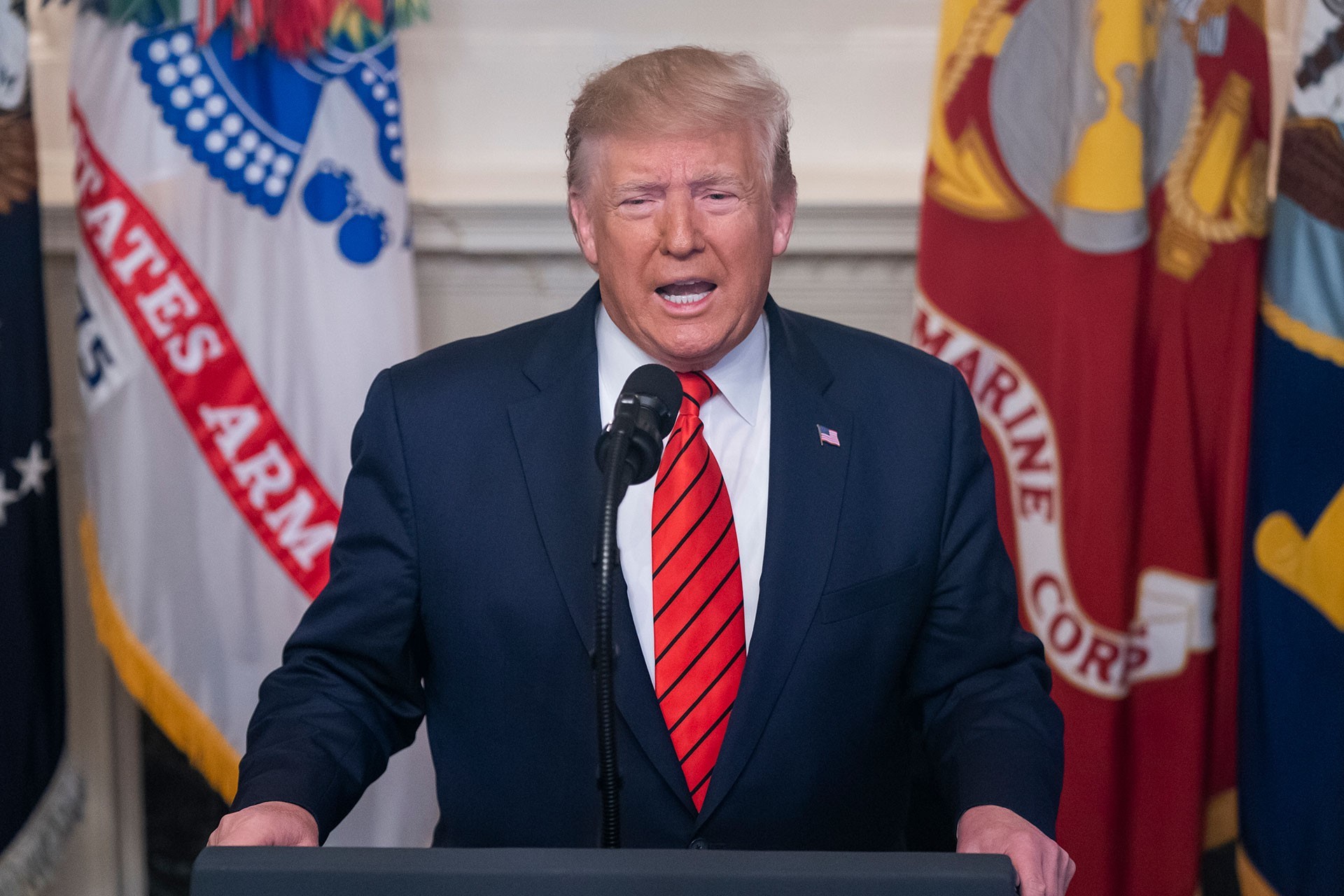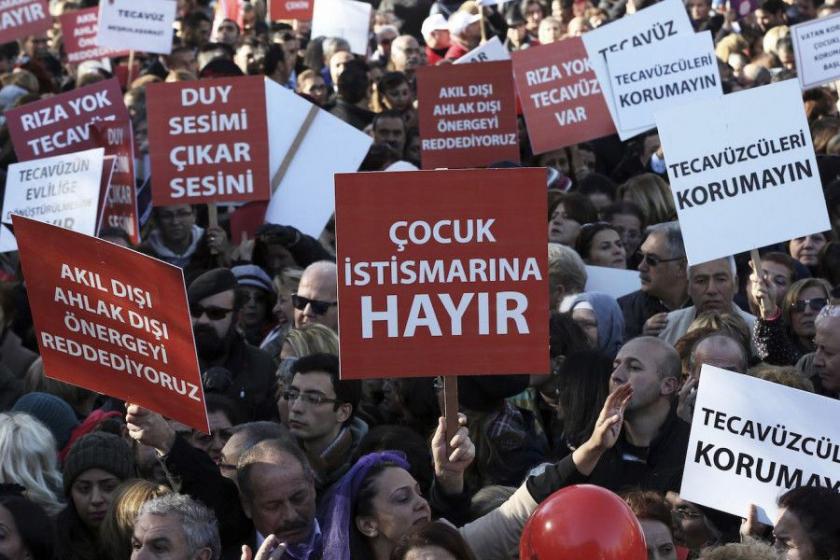Is the killing of Baghdadi, Trump’s self-salvation operation?
With his stress that the US conducted the operation single-handedly, Trump precisely wishes to give the message that the US has maintained its influence in the region and capacity/strength to stage single-handed operations.

Fotoğraf: Jim Lo Scalzo/EPA-EFE/AA
Trump’s announcements that ISIS leader Baghdadi had been killed in a US operation have sparked controversy in various respects. Even if a degree of doubt has been inspired by previous comments emanating from Trump about Baghdadi having been killed, this time pronouncements made by different sources and the latest information coming from the ground show that Baghdadi was killed.
Let us embark on the discussion with the consequences that will ensue from the US’s announcement that it conducted the operation single-handedly, even if it thanked Russia, Turkey, Iraq, Israel and the SDG (Syrian Kurds).
Trump’s order for troops to be withdrawn from areas in which it had cooperated with the Kurds east of the Euphrates prior to Turkey’s “Fountain of Peace” operation provoked adverse reaction both in the US and among world public opinion. The agreement the SDG reached under Russia’s guarantee with the Syrian administration following this decision of Trump’s has ensured that the initiative east of the Euphrates where the US had previously been influential has passed to a significant degree to Russia. At this very juncture, with the US’s presence in Syria and even the region (Middle East) now coming into question, news came of Baghdadi’s killing in a US operation.
Above all, with his stress that the US conducted the operation single-handedly, Trump precisely wishes to give the message that the US has maintained its influence in the region and capacity/strength to stage single-handed operations. Secondly, Trump, in saying that the intelligence for this operation was given by the SDG, wants to show that the US’s cooperation with the SDG against ISIS is continuing and to squash criticism directed at him in this regard prior to the 2020 presidential elections in the US. Thirdly, the killing by the US of the leader of a terrorist organization that has earned the hatred of the entire world acquires further meaning as a move to rectify the US’s negative image among the peoples of the world.
Before moving on to a more detailed discussion of the position the fight against ISIS assumes in relation to the US’s regional strategy, there is a need to take a passing glance at the remarks made about the operation in which Baghdadi was killed from the ruling front in Turkey. With President Erdoğan saying, “As the country that has paid the greatest price in the fight against Daesh, the PKK/YPG and all other terrorist organizations, we greet this development with satisfaction,” he notably included as a terrorist organization alongside Daesh/ISIS the YPG/SDF, which is accepted globally as having been in the forefront of the fight against ISIS and which also provided intelligence for the operation in which Baghdadi was killed. On the other hand, Presidential Communications Director Fahrettin Altun, having said, “We, the Republic of Turkey, felt satisfaction at supporting the efforts of our NATO ally the USA to deliver a bloody-handed terrorist to justice,” laid special stress on Turkey’s fight against ISIS with the words, “We recall with indebtedness our heroic soldiers who sacrificed their lives to protect the world from Daesh terror” with a view to remedying the widely held opinion in the world that Turkey supports ISIS.
Even these comments made for the purpose of supporting the operation show that there is a serious legitimacy issue in the policies the Erdoğan administration is implementing and further lay abundantly bare the impasses of its Syria policy.
Turning to the US, it is initially necessary to stress that, even if we leave the houseroom granted for Islamist organizations to develop by the “green belt” project the US implemented at the time to hem in the Soviets and even its support for Al-Qaeda in Afghanistan, the fact does not change that US and Western imperialists’ intervention in the region played a decisive role in the emergence of ISIS-style organizations.
The reason Libya has today been embroiled in chaos through radical Islamist organizations is the NATO intervention spearheaded by the US and France.
Moreover, the way ISIS set itself up under Baghdadi’s leadership in Iraq as the ISI (Islamic State of Iraq) in 2004 and acquired the name ISIS (Islamic State of Iraq and the Levant) having attained power in Syria following the intervention in Syria supported and encouraged by Turkey, Qatar, Saudi Arabia and the Western imperialists suffices to show the decisive influence of imperialists’ and regional reactionaries’ policies of intervention and war in such organizations appearing and attaining power.
The sectarian appearance assumed by the policy of intervention in Syria and the decisive position adopted by radical Islamists in the anti-regime struggle and, in response, the effective intervention of first Iran and then Russia leading, far from the destruction of the Syrian regime, to an enhancement of Iran’s regional influence caused a change in the US’s regional strategy. US President at the time, Obama, announced the “Strategy for the Fight against ISIS” in September 2014. This strategy aimed to restore the US’s waning regional power and, to this end, to unify along the US’s axis the regimes that were collaborating with the US. To lend legitimacy to this strategy, the US embarked on developing cooperation with the Syrian Kurds, who had won the sympathy of the peoples of the whole word with their anti-ISIS struggle of that time.
In short, the US tried to implement a strategy dubbed the fight against ISIS which had actually emerged and developed as a product of its own interventionist policy aimed at preserving its position in the distribution struggle in the region. And we are now at a point at which Trump is trying to portray the killing of ISIS leader Baghdadi as a success of this strategy.
However, the imperialists’ and collaborationist regional reactionaries’ struggle for distribution/sovereignty of more than a century’s duration shows us that the truth is different. The ethnic and sectarian wars triggered by this distribution struggle ensure that ISIS-style organizations and the Baghdadis will constantly find fresh living space for themselves.
In conclusion, the elimination of a terrorist like Baghdadi who has caused great pain to the peoples of the region is certainly important. But however much Trump, who is going through hard times in both the region and the US, sees/portrays the killing of Baghdadi through a US operation as being his salvation, the same does not apply to the peoples of the region. This is because the salvation of the peoples of the region in a true sense calls for their salvation, not just from the Baghdadis, but from the Trumps and their collaborators, and for them to jointly set up a future in which they will live in democracy and peace.







Evrensel'i Takip Et